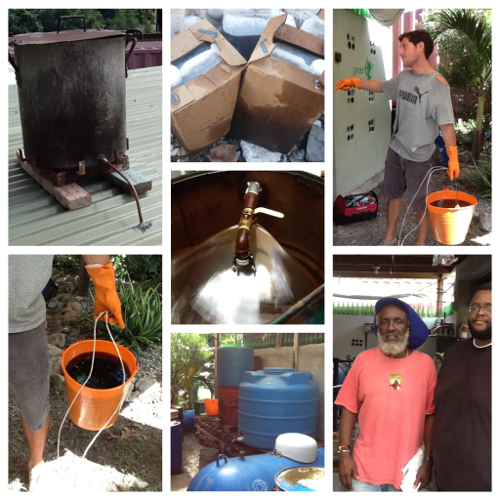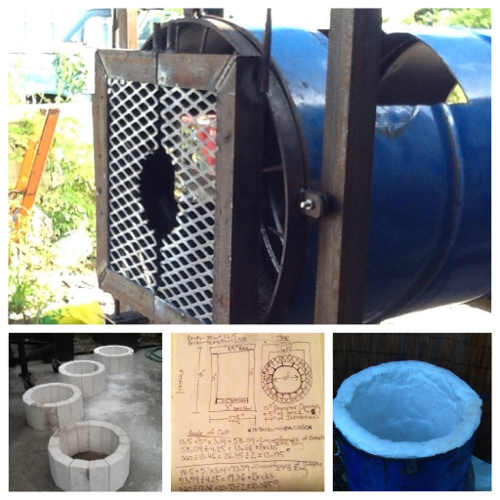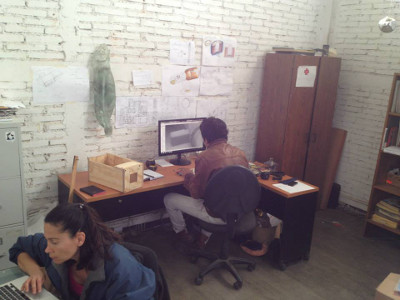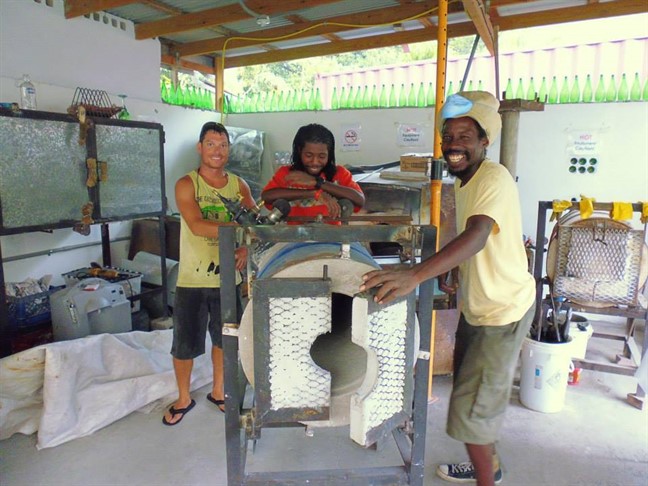Glass blowing studios around the world are facing a problem of not only sustainability of the craft but of financial sustainability due to rising fuel costs. Glass melts at temperatures of 2000 degrees Celsius. Green VI’s Glass Studio is currently fuelled by propane to achieve this. For the first 10 months of operation, Sol Petroleum sponsored propane. Since Jan 2012 Green VI has been covering these costs independently. To their credit, Sol have generously sponsored propane for 3 months in 2015 as we convert to biofuel, demonstrating their commitment to going green.
Some glass studio innovators like Xaquixe in Mexico and Big Island Glass in Hawaii have converted their glass studios to run on used vegetable oil (UVO). To meet Green VI’s commitment to sustainability we have been working with Christian Thornton at Xaquixe in Mexico to incorporate the reuse of waste vegetable oil collected from local restaurants into our daily operation.
Through this collaboration, and with Garrett Wheeler’s hard work and dedication, we have built a double ended glory hole that not only runs off a “waste” stream but also allows us to double our production.
Every year restaurants throw out thousands of gallons that are simply burned in an oil burner at Pockwood Pond.Used cooking oil can be harvested from restaurants as an “urban crop”. We collect all the used vegetable oil produced by Myett’s and Tony’s,filter and clean it and feed it into a pot perched on the top of our roof. The oil is then gravity fed into the special burner designed by Christian Thornton.
The reuse of used cooking oil is also a teaching tool for the general public, not only as an alternative fuel source but also highlights proper disposal and reuse of UVO. UVO can clog up sewer pipes and drains as it cools and solidifies causing blockages and sewage overflows. In the BVI most structures have pipes embedded in concrete, so cleaning, repairing and replacing them can have major additional costs.
Aims and objectives of Glass Studio biofuel conversion;
- Reduce our overall carbon footprint and begin weaning us off fossil fuel
- Reduce operational costs by reducing propane use by 40%
- Double production with our double ended glory hole
- Allow apprentices double the time currently available to learn their trade
- Demonstrate “waste” as a resource
- Alleviate stress on local sewage infrastructure from grease blockages
- Increase awareness on the impact of grease in drains, sewage lines & marine environment





Recent Comments